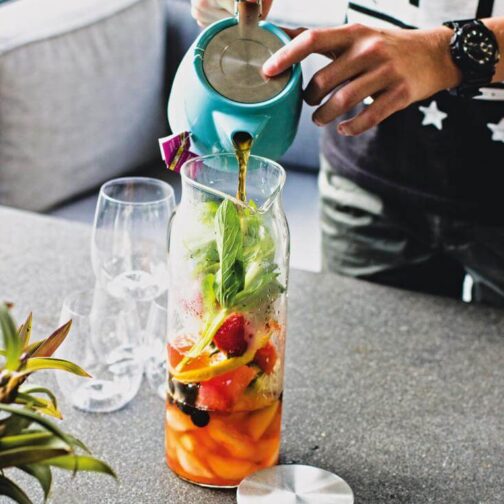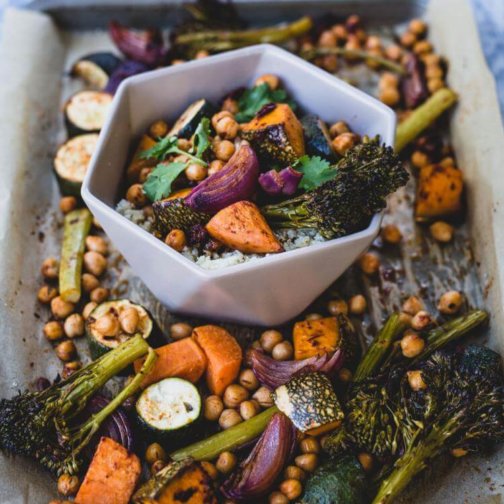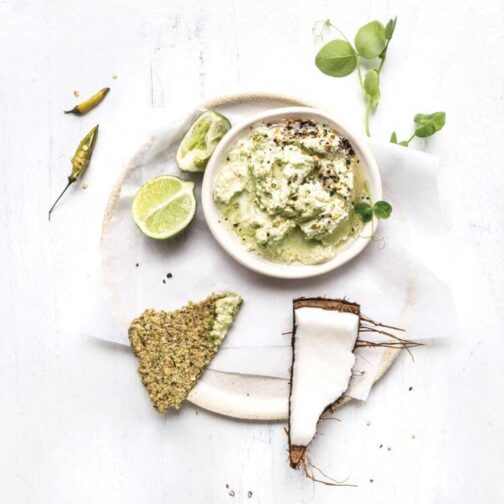
Have you ever considered the ethics of your daily coffee ritual? Here’s how you can best protect people and planet while sipping your beloved brew.
The environmental issues associated with coffee are manifold – its production can lead to deforestation, habitat loss, and pollution – while workers face ethical challenges including poverty, gender inequality, and child labour. Adapting your coffee habits as a consumer can go a long way in protecting the wellbeing of Earth and its inhabitants.
Farming fair
Fairtrade certification is a good place to start in ensuring your coffee is ethical. “Coffee farmers are among the most vulnerable and marginalised communities in the global economy today,” says Fairtrade Australia and New Zealand CEO Molly Harriss Olson. Fairtrade Certified coffee is sold only through traced and audited supply chains with transparent, comprehensive, and rigorous social, ethical, and environmental standards.
Karen Barnett, founder of Montville Coffee, says being Fairtrade Certified was non-negotiable when she and her husband Richard established Queensland’s first Fairtrade and organic coffee roastery in 2000. “As a company, not buying Fairtrade is building a business on someone else’s poverty,” says Karen. “As consumers, we need to look at the implications of our purchases. There’s an absolute crisis because farmers are not making the cost of production.”
Threats to biodiversity
Deforestation and its subsequent greenhouse gas emissions is one of the key environment issues associated with coffee production, resulting in loss of habitat and biodiversity. Karen also notes the clear and critical link between coffee and climate change, which presents new challenges to farmers. “Growing coffee is about elevation, which is connected to temperature and rainfall,” she says. “With shifts in both of those, climate change in having a big impact on the industry.”
While global warming is a broader issue, we can support those taking steps towards positive change. Rainforest Alliance, an accreditation driving initiatives to conserve forests, protect biodiversity and build climate resilience, is one such organisation. Though it’s not a fair trade certification, the Rainforest Alliance’s little green frog seal can be found only on products that meet its rigorous standards of social and environmental sustainability.
Organic matters
Coffee is one of the most heavily treated crops on the planet next to cotton and tobacco, with pesticides another leading cause of biodiversity loss. The use of chemicals affects not only the coffee itself but the health of farmers and communities. Organic certification means less soil and water pollution, and can be identified through labels from Australian Certified Organic, National Association for Sustainable Agriculture Australia, and Soil Association Organic, among others, which involve thorough accreditation processes.
Single origin vs blends
Whichever you choose, it comes down to provenance. The traceability of single origin beans might seem easier; however, this doesn’t make blends any less ethical as many are simply a mix of single origin varietals combined to complement one another.
Single origin coffee is generally seen as being of a higher quality, as well as more expensive due to the extra care taken in picking, handling, and processing. It is often enjoyed without milk and sweetener to fully appreciate its unique flavour profile, so in that respect it can mean your coffee has a smaller eco-footprint. Whether you prefer a long black or a latte, educating yourself on the origins of the finished product will point you in the right direction.
***
Five tips for a sustainable coffee
Here’s how to ensure your morning ritual isn’t costing the Earth.
Seek out sustainable beansNot all coffee is created equal. Do your research and check the label, keeping in mind that organic certification doesn’t mean fair wages and vice versa. If you get your morning fix at a cafe, don’t be afraid to ask about the origins of the coffee. Pack a reusable coffee cupSay no to disposable coffee cups and take a glass or ceramic one to your barista. This small daily habit can make a big difference in reducing waste – more than 500 billion coffee cups are disposed of each year. Many cafes even give a discount to customers who bring their own cup. Choose a plant-based milkConsuming less animal products is a great way to minimise your eco-footprint. Rethink whether you really need to add milk, and if so, switch to plant-based alternatives to dairy such as almond, macadamia, coconut, rice, soy, and oat milk. Opt for eco-friendly brewingFor energy efficiency, choose French press, instant coffee, or filter coffee with a reusable filter that hasn’t been treated with chemicals. The convenience of capsules means more companies are offering pods, so if you can’t avoid this less eco-friendly method, look for compostable pods or find out about recycling options. Compost your coffee groundsIt’s not just cups that end up in landfill but there’s an easy way to reduce coffee waste. The addition of coffee grounds can supercharge your compost heap due to their high nitrogen content. The grounds are too acidic on their own, so be sure to mix in some organic matter. |





















